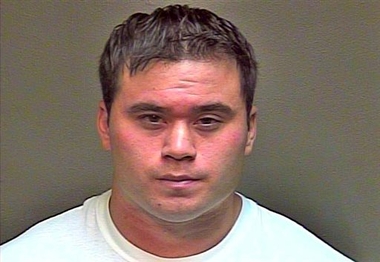Betrayed by the badge

When Oklahoma City police officer Daniel Holtzclaw was charged last year in the rape, sexual battery or exploitation of 12 women and a teenage girl, The Associated Press wanted to know how often officers nationwide are accused of sexual misdeeds.
The question had no easy answer because no federal accounting of police misconduct exists. However, most states have standards and training commissions that can revoke officers' law enforcement licenses for misconduct. That administrative process is commonly known as decertification.
In a yearlong investigation, the AP collected and analyzed decertification records and uncovered about 1,000 officers who lost their licenses in a six-year period for sexual assault, other sex offenses or misconduct that ranged from propositioning citizens to consensual but prohibited on-duty intercourse. The finding is unquestionably an undercount of one of the most prevalent complaints against law officers — due to a piecemeal system for reporting and tracking police misconduct, and slaps on the wrist that sometimes allow problem officers to keep working.
Behind the number are stories of devastation: Underage interns who dreamed of working in law enforcement but saw their lives crumble when they were assaulted by a man in uniform. Women shouldering sketchy pasts or facing new charges who were coerced into performing sexual favors to avoid arrest. Victims of other crime who had called 911 seeking help, only to then be re-victimized by an officer of the law.
One police chief said sex-related misconduct is underreported because "people are scared that if they call and complain about a police officer, they think every other police officer is going to be then out to get them."
Flashing lights pierced the black of night, and the big white letters made clear that it was the police. The woman pulled over had nothing to hide, so when the Oklahoma City officer accused her of erratic driving, she did as directed. She later told a judge she was splayed outside the patrol car for a pat-down and made to lift her shirt — then pull down her pants — to prove she wasn't concealing anything. She said she pleaded "No, sir" as the officer unzipped his fly and exposed himself with a directive that led to oral sex: "Come on. I don't have all night." The accusations reflect a betrayal of the badge that has been repeated across the country. In a yearlong investigation, The Associated Press uncovered about 1,000 officers who lost their law enforcement certifications in a six-year period for sexual assault, other sex offenses or sexual misconduct — and the number is unquestionably an undercount of one of the most prevalent complaints against law officers.
Jury selection in the trial of Holtzclaw begins today in Oklahoma City.
By Matt Sedensky and Nomaan Merchant, AP
Copyright 2015 The Associated Press. All rights reserved. This material may not be published, broadcast, rewritten or redistributed.
The Gayly - 11/2/2015 @ 1:15 p.m. CST





